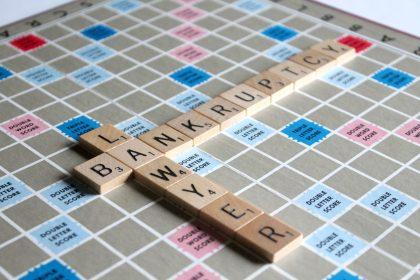
- posted: May 18, 2020
- News, Uncategorized
Coming to the decision to file for bankruptcy is not easy, but bankruptcy is a very necessary tool for many individuals and businesses to obtain a better and more secure financial future. When filing for bankruptcy, you must choose between Chapter 7 and Chapter 13. Both types ultimately wipe clean many types of debt, which is the goal, but from there they differ quite significantly. This blog will lay out some major differences between these two types of bankruptcies as well as some tradeoffs between them.
Liquidation Bankruptcy vs. Reorganization Bankruptcy
Chapter 7 is often referred to as a liquidation bankruptcy and is much closer to the classical idea of what a bankruptcy is. If you qualify for Chapter 7 bankruptcy, you will file and get most of your unsecured debts discharged (wiped clean). A typical Chapter 7 bankruptcy case takes only a few months, after which you are free to rebuild your credit and improve your overall financial situation.
In contrast, Chapter 13 bankruptcy involves a repayment plan to creditors; this plan occurs over a period of 3-5 years. With this type, you will submit a plan to pay back creditors at least a portion of what you owe on certain debt. The total amount paid in most Chapter 13 repayment plans ends up not being the full amount.
The Means Test
What separates Chapter 13 debtors from Chapter 7 debtors is their ability to pay back at least some of their debt. Many individuals who want to file for Chapter 7 bankruptcy do not qualify because they simply make too much money. To determine if you can use Chapter 7, you must take the means test. This test takes your income and compares it to the median income of a similarly sized household in your state. It also determines how much monthly disposable income you have. If your income is over a certain amount, then you have failed the means test and are, therefore, ineligible for Chapter 7 bankruptcy.
Benefit of Chapter 7 Over Chapter 13
The major benefit of Chapter 7 bankruptcy over Chapter 13 is the relative efficiency in which you can discharge your debts. Due to the simple fact that you were able to successfully file for Chapter 7, you do not have to pay down any debts like you would for a Chapter 13 case.
Benefit of Chapter 13 Over Chapter 7
The main advantage of Chapter 13 over Chapter 7 is that you will get to keep your assets and property without having to worry about repossessions. This will allow you to catch up on payments for assets like houses and vehicles.
Conclusion
There are many more factors not covered in this blog that impact which type of bankruptcy is right for you. You may or may not qualify for Chapter 7 bankruptcy and, if even if you do, Chapter 13 might still be your better option. To know which type you should pursue, give our firm a call today at 330-664-9919.



